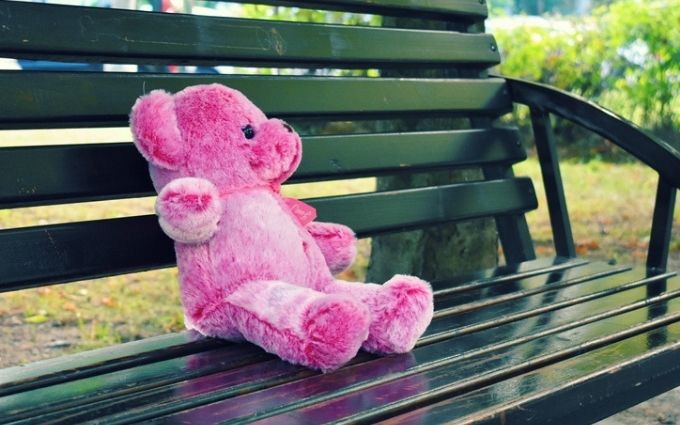
Pregnancy and Infant Loss; The Difficult Discussion and Help for Parents

One of the most difficult parts of working in maternity care is having to bring up discussions surrounding Pregnancy and Infant Loss. It is a topic that no one wants to think about, less talk about; a concept that understandably sends shivers down the spines of any new parent or parent-to-be. Unfortunately, it is an area that we must address and bring awareness to, with the hope that it may help to prevent loss for others in the future, enable us to better support affected families and to respectfully acknowledge and remember those tiny little treasures lost along the way.
So many of us know someone who has been affected, or may even have been affected ourselves, by the sudden and tragic loss of a pregnancy, newborn or infant. In generations gone by it was a topic that was taboo; a topic that you did not bring up or discuss with grieving parents for fear of upsetting them further; a topic you dare not discuss with pregnant women in case you frightened them. With time, experience and evidence-based research we now know that openly discussing and educating women on the importance of fetal movements, pregnancy wellbeing and safety can help to reduce the incidence of stillbirth and neonatal death. Of course, there are the many cases that we may not ever understand or have reason for, cases that may never have been preventable. Part of this discussion is helping families to understand though, that for those who have had to endure the agony of this loss there is support available.
Stemming from Red Nose Australia (a national charity providing research, education and support, which was established in the late 1970’s) Red Nose Grief and Loss Support provides immediate, professional support (by qualified bereavement counsellors) to anyone who has experienced the sudden and unexpected death of their baby or child during pregnancy, birth, infancy and early childhood. As well as this service, they maintain an incredibly informative website and education platform, ongoing counselling and peer support programs. Their telephone support service is available 24 hours per day.
Contact: 1300 308 307
rednosegriefandloss.org.au
SANDS (Miscarriage, Stillbirth and Newborn Death Support) is a volunteer based, not-for-profit organisation who provide peer-to-peer support for bereaved parents, information resources on grief and loss for families and the broader community; as well as providing support and training for healthcare professional. They offer resources and support for parents, wherever they are at in their journey, who have been affected by early pregnancy loss, medical terminations, stillbirth and neonatal death, as well as specific support for father’s dealing with grief and information for extended family and friends. With a history of over 40 years, this very well resourced and reputable organisation provided support for over 4000 bereaved parents in 2018/2019.
Contact: 1300 072 637
sands.org.au
For those who may be dealing with a pregnancy after having previously experienced loss, this can be a particularly unsettling and anxious time. It is important to seek information and build knowledge that may provide some reassurance, and to seek counselling from a professional source if you are feeling overwhelmed. Still Aware is a stillbirth awareness organisation who provide education and training for health professionals, as well as information and resources for parents-to-be. Highlighting the importance of pregnancy safety, awareness and importance of movements, and risk reduction with a particular focus on stillbirth, this organisation aims to promote prevention of loss.
Website: stillaware.org
Also related: movementsmatter.org.au
On a more positive and promising note, in recent years Still Aware, along with the Stillbirth Foundation of Australia, in collaboration with the NSW, Queensland and Victorian Health Departments, have joined together to form the ‘Stillbirth Centre of Research Excellence’. One of their key projects has been to develop the Safer Baby Bundle initiative, including a handbook, guide, and e-learning program for maternity health care professionals. A similar initiative which has already been introduced in the UK and Scotland has promisingly shown a 20% reduction in stillbirth rates since its inception, providing hope that similar figures can be achieved here in Australia as well. The key points outlined in the initiative address the following elements:
- Supporting women to stop smoking during pregnancy
- Improving detection and management of fetal growth restriction
- Raising awareness and improving care for women with decreased fetal movements
- Improving awareness of maternal safe going-to-sleep position in late pregnancy
- Improving decision-making about timing of birth for women with risks for stillbirth.
Further information for women and health professionals can be found at: stillbirthcre.org.au
If reading this article has exacerbated any fears or anxieties, or if you have any concerns or worries about your pregnancy, please feel comfortable to talk to the team here at Create Health. Your doctor and allied health team (including midwives and perinatal mental health professionals) are here to assist you and ensure that you have the best guidance, information and support available.
« back


 (03) 9873 6767
(03) 9873 6767